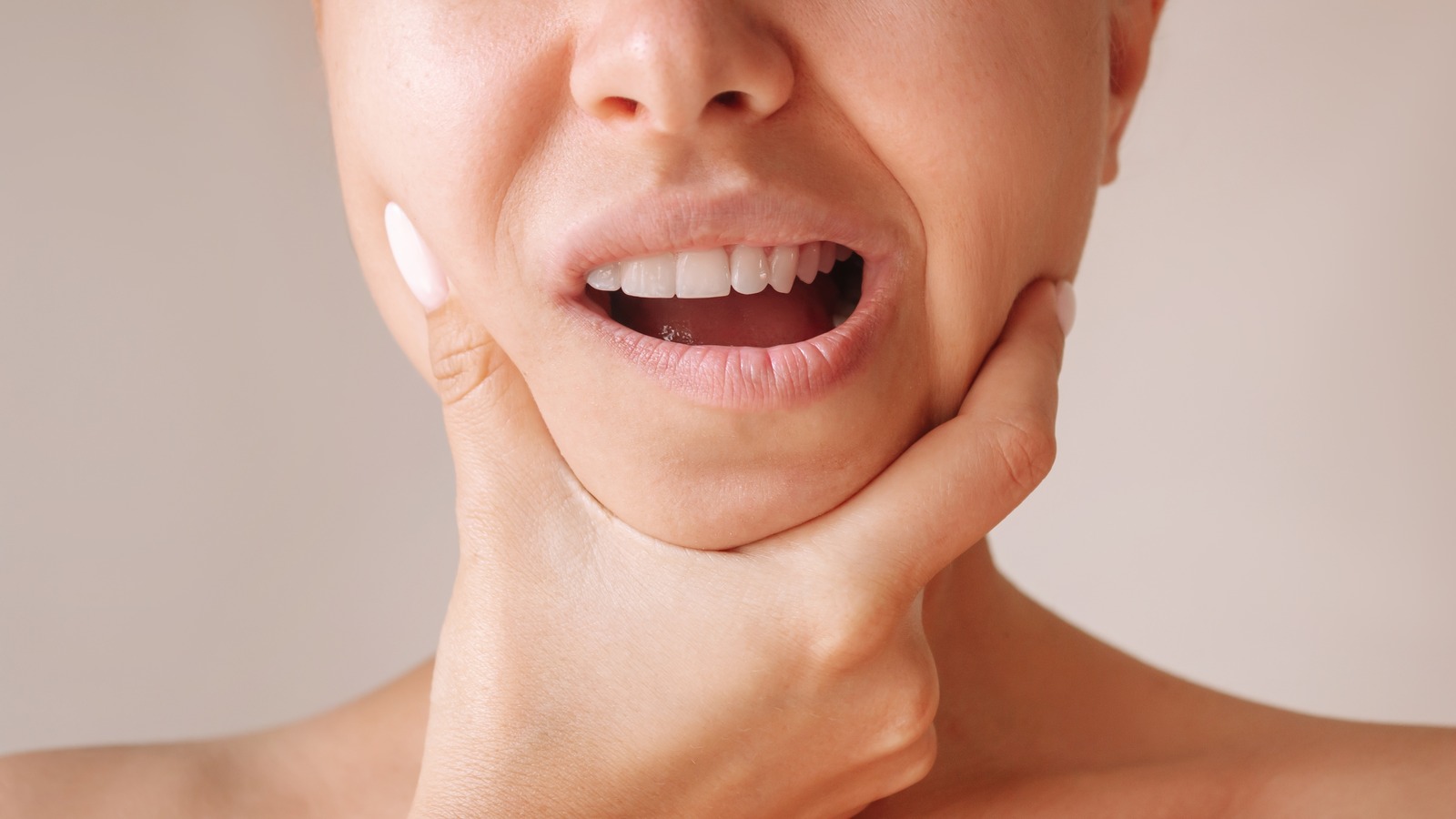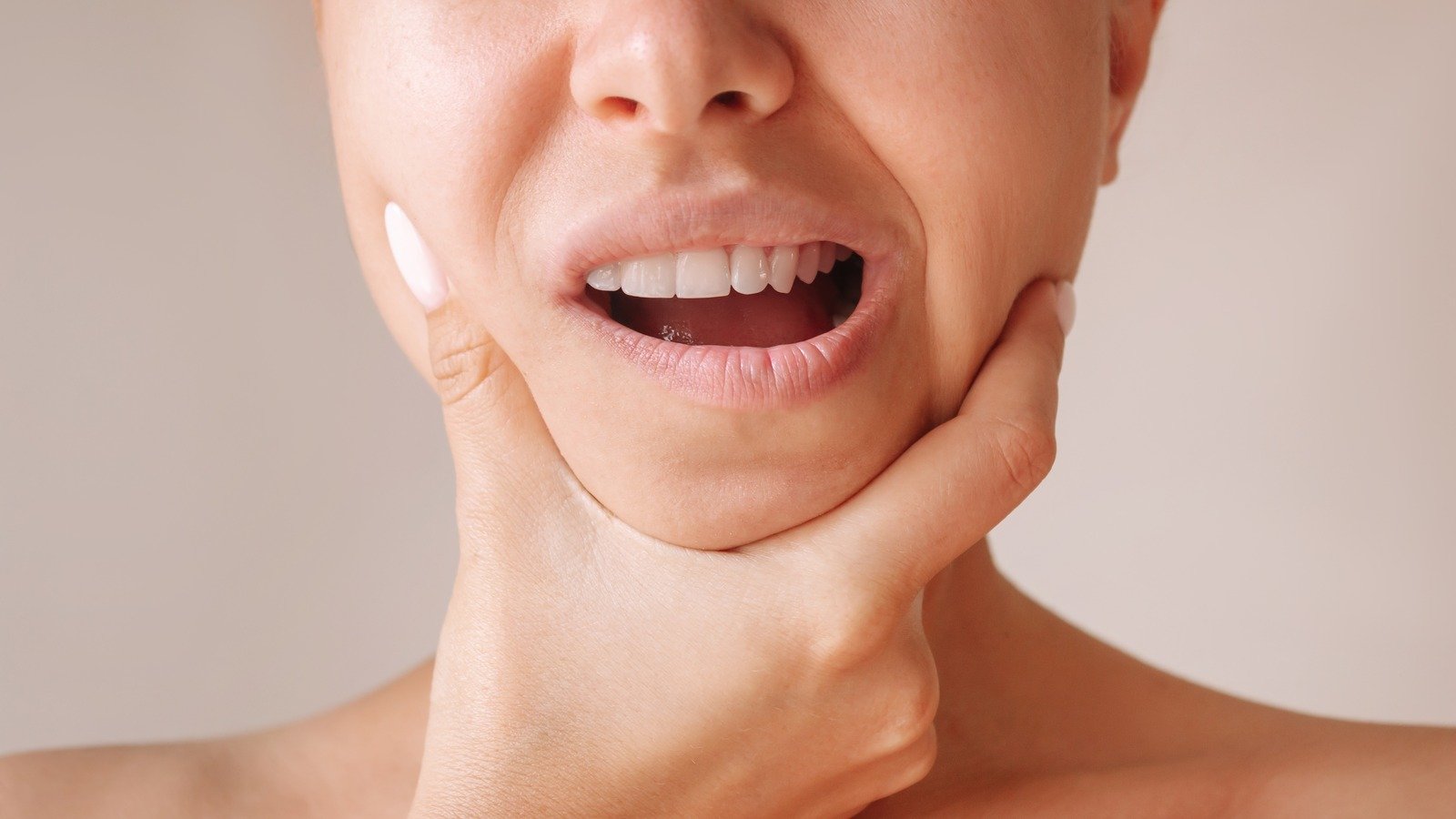[ad_1]

When we talk about “chronic mouth breathing,” we’re not referring to those times when you breathe through your mouth while exercising or lifting something heavy. This is, quite literally, when you mouth breathe most of the time. Turns out that this breathing style can alter the shape of someone’s face, which in turn can disrupt their sleep. Talk about a vicious cycle.
“Children [who mouth breathe] will typically develop smaller mid-faces, nasal cavities, and jaws since they don’t experience the normal air resistance,” shared Dr. Kami Hoss, a San Diego-based dentist and author of the book “If Your Mouth Could Talk: An In-Depth Guide to Oral Health and Its Impact on Your Entire Life” (via Sleepopolis). In other words, an adenoid face – a face that has an open-mouthed appearance and a shorter upper lip.
“When you breathe through your nose, your tongue naturally fills your palate space and exerts an upward and outward pressure. It promotes forward growth of the jawbones,” explained Dr. Albert Silvera, a Beverly Hills-based doctor of dental surgery, to Allure. When this pressure is non-existent (thanks to mouth breathing), “the bottom jaw never grows forward fully and [can] lead to an obtuse bottom jaw angle, a retruded chin, crowding of the teeth, and a constriction of the space where the tongue is supposed to rest,” added the dental surgeon. The narrower airways that come from mouth-breathing-related changes in jaw shape can cause sleep problems (via Allure).
[ad_2]
Source link
